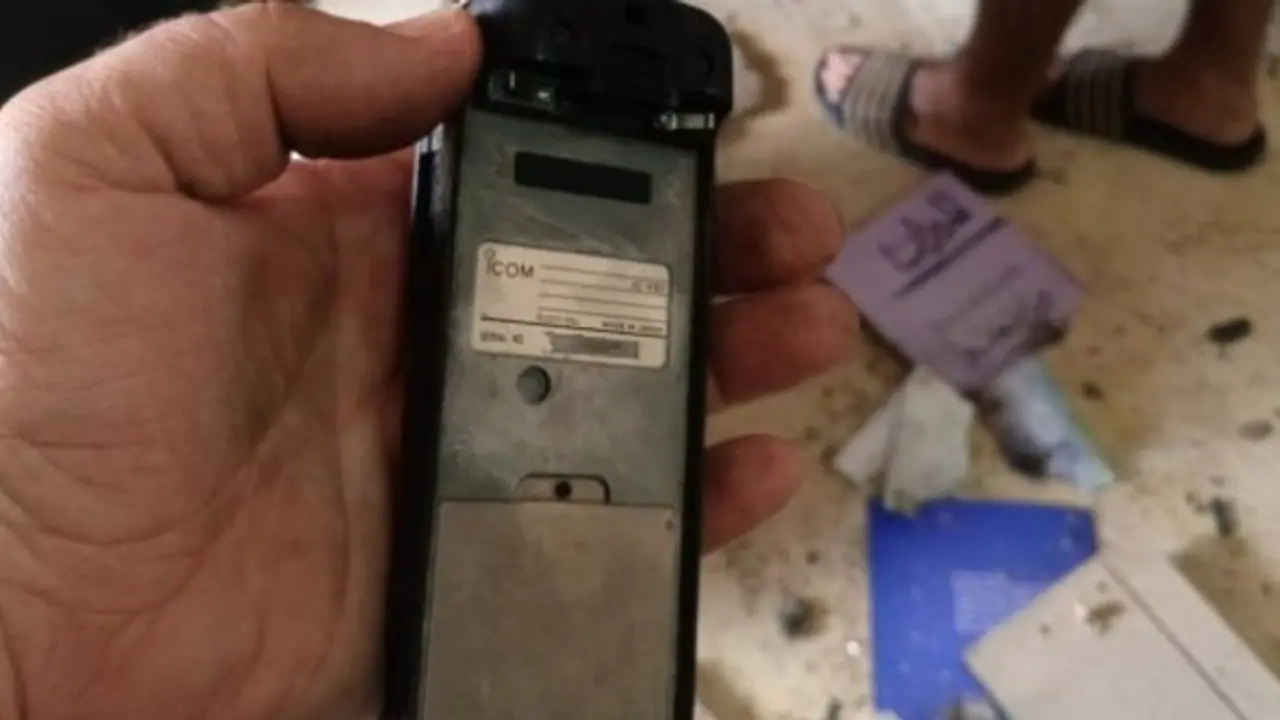Japanese electronics manufacturer Icom Inc. confirmed on Thursday that it had discontinued the production of the handheld radios allegedly involved in a series of deadly explosions in Lebanon more than 10 years ago.
Japanese electronics manufacturer Icom Inc. confirmed on Thursday that it had discontinued the production of the handheld radios allegedly involved in a series of deadly explosions in Lebanon more than 10 years ago. The company issued the statement following reports that two-way radios bearing Icom's logo had detonated in Hezbollah-controlled areas, causing multiple casualties.

The blasts occurred on Wednesday in southern Lebanon, with reports indicating that walkie-talkies used by the armed group Hezbollah exploded, leading to significant loss of life. The explosions marked the second day of device-related detonations, following the explosion of Hezbollah members' pagers across Lebanon on Tuesday. The two days of explosions have resulted in at least 32 deaths and thousands of injuries, as confirmed by Lebanese officials.
Images from the explosion sites showed the charred remains of walkie-talkies, with labels displaying “ICOM” and “made in Japan.” These devices were widely used by Hezbollah operatives for communication, according to security sources. The unprecedented nature of the blasts has shaken Hezbollah, which has accused Israel’s intelligence agency, Mossad, of orchestrating the attack. The explosions occurred amid rising tensions between Hezbollah and Israel, further stoking fears of an all-out regional conflict.
In response to these reports, Icom Inc., listed on the Tokyo Stock Exchange, clarified that the handheld radios in question, the IC-V82 model, were last produced in 2014.
“Earlier today in worldwide media, there have been reports that two-way radio devices bearing the Icom logo have exploded in Lebanon. We are currently investigating the facts surrounding this matter. We will release updated information as it becomes available on our website,” the company said in a statement.
"The IC-V82 is a handheld radio that was produced and exported, including to the Middle East, from 2004 to October 2014. It was discontinued about 10 years ago, and since then, it has not been shipped from our company," Icom said in a statement.
Icom emphasized that not only was production of the radio model halted, but the batteries required to power the devices had also been discontinued.
"The production of the batteries needed to operate the main unit has also been discontinued, and a hologram seal to distinguish counterfeit products was not attached, so it is not possible to confirm whether the product shipped from our company," it added.
Icom assured the public that all of its products, including the IC-V82 radios, were manufactured under strict management protocols at its Wakayama Prefecture facility in Japan.
"All of our radios are manufactured at our production subsidiary, Wakayama Icom Inc., in Wakayama Prefecture, under a strict management system... so no parts other than those specified by our company are used in a product. In addition, all of our radios are manufactured at the same factory, and we do not manufacture them overseas," the statement said.
Moreover, Icom pointed out that its export operations, including those to the Middle East, were subject to Japan’s stringent security trade control regulations. Radios intended for overseas markets are sold exclusively through Icom’s authorized distributors, ensuring compliance with international and Japanese security guidelines.
While Icom expressed concern over the reports linking its radios to the deadly explosions, it underscored the possibility that counterfeit versions of its products may have been involved. The lack of a hologram seal on the exploded devices raised suspicions that the radios may not have been genuine Icom products. This raises questions about the origin and authenticity of the communication devices used by Hezbollah operatives.
Counterfeiting of electronic devices, particularly in regions with high demand for military or covert operations, is a well-documented issue. Given that the IC-V82 model was discontinued in 2014, it is possible that the devices used in the explosions had either been tampered with or were not originally sourced from Icom.
The two waves of explosions have plunged Hezbollah into disarray. Wednesday's detonations of the walkie-talkies, which reportedly killed 20 people and injured more than 450, came just a day after hundreds of pagers exploded in various Hezbollah-controlled areas, including Beirut, southern Lebanon, and the Bekaa Valley. These pager explosions resulted in 12 deaths and nearly 2,800 injuries, many of whom were civilians, including children.
Hezbollah has accused Israel of orchestrating these attacks, which it views as the largest security breach in its history. Although Israeli officials have not publicly commented on the matter, security analysts have pointed to Mossad, Israel’s intelligence agency, as the likely culprit behind the attacks. The coordinated nature of the explosions has raised questions about the vulnerability of Hezbollah’s communications infrastructure.
